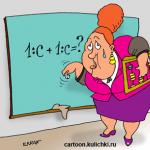Slide 1
Slide 2

And so - I became a poet. Love blossomed in the curls and in the early sadness of the eyes. And I was in pink chains with women many times. A. Blok
Slide 3

Alexander Alexandrovich Blok was born on November 16, 1880 in St. Petersburg. His father, Alexander Lvovich, was a professor of law at the University of Warsaw, and his mother, Alexandra Andreevna, was a writer and translator.
Slide 4

Alexander spent his childhood mainly in the house of his grandfather, the famous Russian botanist Andrei Beketov, going to his mother’s modest estate Shakhmatovo near Moscow in the summer.
Slide 5

Alexander Blok graduated from the Vvedenskaya Gymnasium, after which he entered the Faculty of Law of St. Petersburg University, however, after studying there for three years, he decided to transfer to the Faculty of History and Philology.
Slide 6

In 1903, Alexander married the daughter of the famous Russian scientist Dmitry Ivanovich Mendeleev.
Slide 7

Alexander began writing poetry as a child, but began to seriously engage in poetry only at the beginning of the 20th century. The poet's creative debut took place in 1903 in the magazine “New Way”. A year later, he meets Andrei Bely, who became one of the poet’s closest friends. Blok’s first book, “Poems about a Beautiful Lady,” appeared on the eve of the 1905 revolution.
Slide 8

The events of the 1905 revolution played an important role in Blok’s life and work. The works of this period are dominated by various elements (blizzard, blizzard). The main characters of the works also change, but they still remain women. At that time, the poet was already quite popular, his poems were published in various magazines - “Questions of Life”, “Scales”, “Golden Fleece” - and the newspapers “Rech”, “Slovo”, “Chas”.
Slide 9

Blok writes scripts for the theater and also acts as a critic. Since 1907, he became the head of the critical department at the Golden Fleece magazine.
Slide 10

The poet's relations with other writers of this time develop. He becomes a regular visitor to the “Circle of Young People”, which includes artists of modern times.
Slide 11

At the same time, Blok meets theater actress Volokhova. The collections “Snow Mask” and “Faina” were dedicated to her. They are followed by the collections “Unexpected Joy” and “Earth in the Snow,” as well as the plays “Stranger” and “Song of Fate.” This period in Blok’s work was quite fruitful: he not only wrote many works and published critical articles, but also gave presentations at the St. Petersburg Religious and Philosophical Society.
Slide 12

The main theme of Blok’s work is the problem of the relationship between the people and the intelligentsia; more and more works dedicated to the homeland appear, while he combines this image with the image of his beloved.
However, journalistic articles from this period were received rather coldly by critics. The poet himself also realized that he had failed to appeal to the people through the press, and gradually began to move further and further away from journalism, returning to his favorite poetry.
Yes, the fateful night paths separated us and brought us together again, and again we came to you, Russia, from a foreign land.
Slide 13

In 1909, the poet visited Italy. The result of this trip was the cycle “Italian Poems”, where the motif of death, the undisturbed sleep of the former high culture and its replacement by the spiritless bourgeois civilization, which the poet hated, clearly sounds.
...grape deserts, Houses and people - all coffins. Only the copper of solemn Latin Sings on the slabs like a trumpet.
Slide 14

His father's inheritance, received after his death in 1909, allowed Blok not to think about making money from his own works and to focus on long-term projects. At this time, the poet completely withdrew from journalistic activities and participation in public literary life. In 1910, he began work on the epic poem “Retribution.” A year later, the collection “Night Hours” was published, and later Blok created the play “Rose and Cross”.
Slide 15

In 1916, Blok was drafted into the army, where he served as a timekeeper in an engineering and construction squad near Pinsk. After the revolution of 1917, Blok returned to his homeland and became a member of the commission investigating the crimes of the tsarist government. There he edits verbatim reports. As a result of this event, Blok wrote the book “The Last Days of Imperial Power.”
Slide 16

In the post-revolutionary period, Blok again returned to journalism. His series of articles “Russia and the Intelligentsia” appears in the newspaper “Znamya Truda”. Soon the poem “The Twelve” and the poem “Scythians” appeared. Criticism was wary of these works as not corresponding to the necessary ideas about the revolution, but paid tribute to his closeness to the people.
Slide 17

In 1918, a new stage began in the poet’s prose work. He makes presentations at meetings of the Free Philosophical Association, and also writes several feuilletons. Since 1918, he began to collaborate with the Theater Department, and later with the Bolshoi Drama Theater. Blok also became a member of the editorial board of the World Literature publishing house, and in 1920 - chairman of the Petrograd branch of the Union of Poets.
Slide 18

Unlike S. A. Yesenin, who most often used images of plants, Blok paid more attention to images of the elements, especially wind. Often in the poet’s work there are such phenomena as blizzards, blizzards, and blizzards. The very tone of Blok’s poems is always swift, rushing somewhere into the distance. There are often descriptions of a sunset colored with fiery or bloody colors. Even the stars do not stand still for him.
Further, further... And the wind rushed, Flying through the black-earth wasteland... ...The steppe path - without end, without outcome, Steppe, and the wind, and the wind...
Slide 19

The poet’s life itself flashed by just as quickly and swiftly. He, like many creative people, having at first experienced a short upsurge after the revolution, became disillusioned with it, or rather, with its results. The rigid framework into which creativity began to be forced, naturally, did not suit the poet.
Slide 20

Soon disappointment and depression turned into mental illness and heart disease. On August 7, 1921, the poet passed away.
Petrov Nikolay
Information about the biography of A. Blok
Download:
Preview:
To use presentation previews, create a Google account and log in to it: https://accounts.google.com
Slide captions:
Alexander Blok Biography and creativity
Childhood and youth Born November 16 (28), 1880. By origin, family and kinship ties, and friendships, the poet belonged to the circle of the old Russian intelligentsia, who served science and literature from generation to generation.
Childhood and youth In 1889, Blok’s mother remarried a guards officer. Nine-year-old Blok settled with his mother and stepfather in the Grenadarian barracks, located on the outskirts of St. Petersburg, Blok wrote his first poems at the age of five. Since childhood, Alexander Blok spent every summer on his grandfather’s Shakhmatovo estate near Moscow. 8 km away was the estate of Beketov’s friend, the great Russian chemist Dmitry Mendeleev Boblovo.
“Poems about a Beautiful Lady” In 1903, Blok married Lyubov Mendeleeva, daughter of D.I. Mendeleev, the heroine of his first book of poems, “Poems about a Beautiful Lady.”
“Amorous affairs...” ... They were like a prince and a princess, but, alas, Alexander Blok was not constant in his amorous affairs and periodically fell in love with socialites: at one time it was the actress Natalya Nikolaevna Volokhova, then the opera singer Andreeva-Delmas . Lyubov Dmitreevna wanted to file for divorce, but Alexander Blok was against it. However, after the First World War he calmed down and spent his last years with Lyubov Dmitrievna as a faithful husband. Natalya Volokhova Andreeva-Delmas
Revolution of 1917 Blok met the February and October revolutions with mixed feelings. He refused to emigrate, believing that he should be with Russia in difficult times. At the beginning of May 1917, he was hired by the “Extraordinary Commission of Inquiry to investigate illegal actions of former ministers, chief managers and other senior officials of both civil, military and naval departments” as an editor.
Recent years: Under Soviet rule, writers were not supported by the government; finding themselves in a difficult financial situation, Alexander Blok became seriously ill and died on August 7, 1921 in his last Petrograd apartment from inflammation of the heart valves. The poet was buried at the Smolensk cemetery, his funeral service was held in the Church of the Resurrection of Christ. Blok's ashes were reburied at the Volkov cemetery. The museum-apartment of A. A. Blok is located on Dekabristov Street, 57.
Creativity “Ante lucem” is the threshold of a future difficult path. The general romantic mood of the cycle also predetermined the antinomian attitude of the young Blok to life. On the one hand, there are motives of gloomy disappointment, which seem so unnatural for a nineteen-year-old boy. On the other hand, there is a craving for life, acceptance of it and awareness of the high mission of the poet, his future triumph.
T creativity Poems about a Beautiful Lady" is the central cycle of the first volume. This is that “moment of too bright light” about which Blok wrote to A. Bely. The heroine's appearance is multifaceted. On the one hand, this is a very real, “earthly” woman. The hero sees her “every day from afar.” On the other hand, in front is the heavenly, mystical image of the “Virgin”, “Dawn”, etc. The same can be said about the hero of the cycle. To enhance the mystical impression, Blok generously uses epithets, such as “ghostly”, “unknown shadows” or “unknown sounds”, etc. Thus, the story of earthly, very real love is transformed into a romantic-symbolic mystical-philosophical myth. “Crossroads” is a cycle that concludes the first volume, which is characterized by dramatic tension. The theme of the Beautiful Lady continues to be heard in this cycle, but something new also arises here: a qualitatively different connection with “everyday life,” attention to the human hero, social issues. “Crossroads” outlines the possibility of future changes in the poet’s work, which will clearly manifest themselves in the second volume.
T creativity “Bubbles of the Earth” is a kind of prologue to the second volume. The poet unexpectedly and polemically turns to the image of “low-lying” nature, recognizes the regularity of the existence of this elemental world and the right of its inhabitants to honor “their field Christ.” “Miscellaneous Poems” and “City” - these two cycles expand the coverage of the phenomena of reality. The poet plunges into the anxious, acutely conflicted world of everyday life, feeling himself involved in everything that happens. These are the events of the revolution, which he perceived, like other symbolists, as a manifestation of the people’s destructive element, as the struggle of people of a new formation against the hated kingdom of social lawlessness, violence and vulgarity. It is characteristic that the lyrical hero, despite all his solidarity with those who come to the defense of the oppressed, does not consider himself worthy to be in their ranks. In these cycles, one of the main problems for the Bloc begins to emerge - the people and the intelligentsia.
T creativity “Snow Mask” and “Faina” - these cycles reflect Blok’s suddenly flared up feeling for the actress N. N. Volokhova. The elements of nature and everyday life are now replaced by the elements of intoxicating, sizzling passion. Surrendering to his feelings, the hero of “Snow Mask”, “overtaken by a blizzard”, plunges into “snow whirlwinds”, into “snowy darkness of eyes”, revels in these “snow hops” and in the name of love is ready to burn “on a snowy bonfire”. “The Life of My Friend” is based on the technique of “doubleness.” This is the story of a man who, “in the quiet madness” of meaningless and joyless everyday life, squandered the treasures of his soul. The tragic attitude and “sullenness” characteristic of most of the poems in the cycle find their extreme expression in those of them where the laws of the “terrible world” acquire cosmic proportions.
T creativity "Retribution" and "Iambics". The word “retribution” is usually understood as punishment for a certain crime. Moreover, the punishment comes from the outside, from someone. Retribution, according to Blok, is, first of all, a person’s condemnation of himself, the judgment of his own conscience. The main guilt of the hero is betrayal of the once sacred vows, high love, betrayal of human destiny. And the consequence of this is retribution: spiritual emptiness, weariness of life, resigned expectation of death.
T creativity of Carmen” – this cycle reflects the “gypsy element”, love, music, art, “sadness and joy”. On the one hand, it vividly resembles “The Snow Mask” and “Faina” due to the similar circumstances of its creation (the cycle is dedicated to the opera singer L.A. Delmas) and the cross-cutting theme of all-consuming spontaneous love.
T creativity "Motherland". Leaving the vicious circle of the “nightingale’s garden,” the poet enters a wide and harsh world that contains that genuine and lofty truth, which he strove to comprehend throughout his entire creative career. This is how the “Motherland” cycle arose, perhaps the pinnacle cycle not only of the third volume, but of all of Blok’s poetry. The theme of the homeland, Russia, is a cross-cutting Blok theme. At one of his last performances, where the poet read a variety of his poems, he was asked to read poems about Russia. “It’s all about Russia,” Blok answered and did not bend his heart, because the topic of Russia was truly comprehensive for him.
T creativity The poem “The Twelve” is not formally included in Blok’s “trilogy”, but, connected with it by many threads, it became a new and highest stage of his creative path. “...The poem was written in that exceptional and always short time when a passing revolutionary cyclone creates a storm in all seas - nature, life and art.” It was this “storm in all the seas” that found its condensed expression in the poem. All its action unfolds against the backdrop of wild natural elements. But the basis of the content of this work is the “storm” in the sea of life. When constructing the plot of the poem, Blok widely uses the technique of contrast.
Alexander Aleksandrovich Blok Work of a student of grade 11 “a” MBOU USOSH No. 4 Nikolai Petrov
Slide 1
Life and creative path Prepared by: Prisyazhnaya T. G., teacher of Russian language and literature, Kozyrevskaya Secondary School, 2015
Alexander Alexandrovich Blok
Slide 2

Alexander Alexandrovich Blok (1880-1921)
Russian poet, classic of Russian literature of the 20th century, one of the greatest poets of Russia.
Slide 3

A. Blok's father is Alexander Lvovich Blok (1852-1909), lawyer, professor at the University of Warsaw.
Mother - Alexandra Andreevna, nee Beketova, (1860-1923) - daughter of the rector of St. Petersburg University A. N. Beketov.
Slide 4

Slide 5

Franz Feliksovich Kublitsky-Piottukh (1860-1920) - Russian general.
The marriage, which began when Alexandra was eighteen years old, turned out to be short-lived: after the birth of her son, she broke off relations with her husband and subsequently never resumed them. In 1889, she obtained a decree from the Synod on the dissolution of her marriage with her first husband and married guards officer F. F. Kublitsky-Piottukh, leaving her son the surname of her first husband.
Slide 6

In 1898 he graduated from high school and entered the law faculty of St. Petersburg University. Three years later he transferred to the Slavic-Russian department of the Faculty of History and Philology, which he graduated in 1906.
Slide 7

Since childhood, Alexander Blok spent every summer on his grandfather’s Shakhmatovo estate near Moscow.
State Historical, Literary and Natural Museum-Reserve of A. A. Blok. Main manor house.
Facade
Slide 8

In 1903, Blok married Lyubov Mendeleeva, daughter of D. I. Mendeleev, the heroine of his first book of poems, “Poems about a Beautiful Lady.”
Slide 9

Winter will pass - you will see My plains and swamps And you will say: “How much beauty! What a dead sleep!” But remember, young one, in the silence of My plains I kept my thoughts And waited in vain for your soul, Sick, rebellious and gloomy. In this twilight I wondered, I looked into the face of cold death and waited endlessly, peering greedily into the mists. But you passed by, - I kept my thoughts among the swamps, And this dead beauty left a gloomy trace in my soul. September 21, 1901
Slide 10

Portrait of the wife of the poet A.A. Blok Lyubov Dmitrievna Blok (artistic surname Basargin)
In 1909, two difficult events occur in the Blok family: Lyubov Dmitrievna’s child dies and Blok’s father dies. To come to his senses, Blok and his wife go on vacation to Italy and Germany. For his Italian poetry, Blok was accepted into a society called the “Academy.” In addition to him, it included Valery Bryusov, Mikhail Kuzmin, Vyacheslav Ivanov, Innokenty Annensky.
Slide 11

In 1912, Blok wrote the drama “Rose and Cross”. K. Stanislavsky and V. Nemirovich-Danchenko liked the play, but the drama was never staged in the theater.
Konstantin Sergeevich Stanislavsky and Vladimir Ivanovich Nemirovich-Danchenko
Slide 12

On July 7, 1916, Blok was called up to serve in the engineering unit of the All-Russian Zemstvo Union. The poet served in Belarus. By his own admission in a letter to his mother, during the war his main interests were “food and horses.” (In the photo: Alexander Blok - 3rd from the left - among the soldiers and officers of the engineering brigade)
Slide 13

Blok met the February and October revolutions with mixed feelings. He refused to emigrate, believing that he should be with Russia in difficult times.
Blok, Sologub and Chulkov in 1908
Slide 14

At the beginning of May 1917, he was hired by the “Extraordinary Commission of Inquiry to investigate illegal actions of former ministers, chief managers and other senior officials of both civil, military and naval departments” as an editor.
A. Blok while working in the Extraordinary Commission. Winter Palace.
Alexander Blok. 1917
Slide 15

At the beginning of 1920, F. F. Kublitsky-Piottukh died from pneumonia. Blok took his mother to live with him. But she and Blok’s wife did not get along with each other.
Slide 16

Blok was one of those artists in Petrograd who not only accepted Soviet power, but agreed to work for its benefit. The authorities began to widely use the poet’s name for their own purposes. During 1918-1920. Blok, often against his will, was appointed and elected to various positions in organizations, committees, commissions
Slide 17

The constantly increasing volume of work undermined the poet's strength. Fatigue began to accumulate - Blok described his state of that period with the words “I was drunk.” This may also explain the poet’s creative silence - he wrote in a private letter in January 1919: “For almost a year now I have not belonged to myself, I have forgotten how to write poetry and think about poetry...”. Heavy workloads in Soviet institutions and living in hungry and cold revolutionary Petrograd completely undermined the poet’s health - Blok developed serious cardiovascular disease, asthma, mental disorders, and scurvy began in the winter of 1920.
Slide 18

Finding himself in a difficult financial situation, he was seriously ill and died on August 7, 1921 in his last Petrograd apartment from inflammation of the heart valves.
Before his death, after receiving a negative response to a request to go abroad for treatment (dated July 12), the poet deliberately destroyed his notes and refused to take food and medicine. A. Blok on his deathbed
Slide 19

The poet was buried at the Smolensk Orthodox cemetery in Petrograd. In 1944, Blok’s ashes were reburied on the literary bridge at the Volkovskoye cemetery.
MCOU "KAZULINSKAYA SOSH"
PRESENTATION FOR A LITERATURE LESSON 11TH GRADE
"IN THE FIRE AND COLD OF ALARMS"
(LIFE AND WORK OF A.A. BLOK)
WORK OF A TEACHER OF RUSSIAN LANGUAGE AND LITERATURE
BAIKOVA G.A.
Alexander Alexandrovich Blok was born in 1880 in St. Petersburg. Father, Alexander Lvovich Blok, is a lawyer, professor at the University of Warsaw. Mother, Alexandra Andreevna (nee Beketova), is a children's writer and translator. The parents separated immediately after the birth of their son.
CHILDHOOD AND YOUTH
A. BLOK'S ESTATE MUSEUM. SHAHMATOVO
Blok’s Shakhmatovo estate is inextricably linked with the name of the Russian poet beloved by many. It is located twenty kilometers from Solnechnogorsk. In the Shakhmatovo estate, bought by the poet’s grandfather Professor A. N. Beketov in 1874, Blok spent the summer months and visited. Over 300 works of the poet were created here
After graduating from the Vvedensky gymnasium in St. Petersburg, in 1898 Blok first entered the law faculty of St. Petersburg University, and later transferred to the historical and philological department and specialized in the Slavic-Russian department.
YEARS OF STUDY
In 1903, on August 30, the wedding of Alexander Blok and Lyubov Mendeleeva took place. The first years of marriage are accompanied by rough edges, disagreements and misunderstandings. The young couple belong to the progressive, bohemian youth.
LOVE IN BLOCK'S LIFE
CREATION
The first poems were written at the age of five. At the age of 16, Alexander Blok studied acting, trying to conquer the stage.
In 1904, Blok’s poems were first published, published in a collection entitled “Poems about a Beautiful Lady.”
Blok's creativity contains several directions. His early works are characterized by symbolism.
Blok's further poems examine the social status of the people. He deeply experiences the tragic fate of humanity (“Rose and Cross”, 1912),
then he comes to the idea of mandatory retribution (the cycle “Retribution” 1907-1913, the cycle “Iambas” 1907-1914).
One of Blok’s most famous poems “Night, street, lantern, pharmacy...” is depicted as a monument on the wall of a house on one of the streets of the Netherlands as part of the worldwide project “Wall poems”.
INTERESTING FACTS FROM THE LIFE OF THE BLOCK
The name Alexander Blok was given to asteroid 2540, discovered in 1971.
During the revolution, Blok did not emigrate; he began working in the publishing house of the city of Petrograd. Revolutionary events in St. Petersburg were reflected in the biography of Alexander Blok in poems, poems (“The Twelve,” 1918), and articles.
Last years of life and death
Before his death, the poet was often ill. The Politburo of the Central Committee of the RCP(b) responded with refusals to the request to leave the country for treatment and the subsequent petition of Maxim Gorky. After this decision, Blok refused to take food and medicine and destroyed his notes.
Living in Petrograd amid poverty, Alexander Blok died of heart disease on August 7, 1921.
Place of Blok’s first burial at Vasileostrovsky Smolensk Cemetery
Blok's grave at Volkovskoye Cemetery





